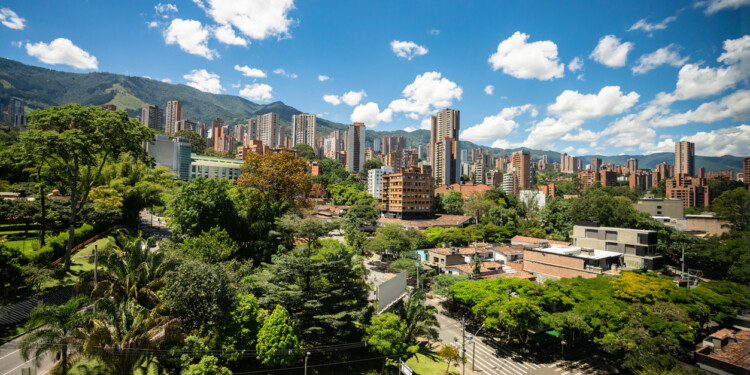Health care is a primary concern for anyone moving overseas and, the good news is, in some places around the world, comprehensive health insurance can be had for US$100 per month.
In some countries, the cost of medical care can be so low that it makes more sense to pay for it as you need it rather than insure against it.
And, under certain circumstances, health care can even be free.
Here’s our top 7, A-grade destinations for health care overseas…
1. Medellín, Colombia
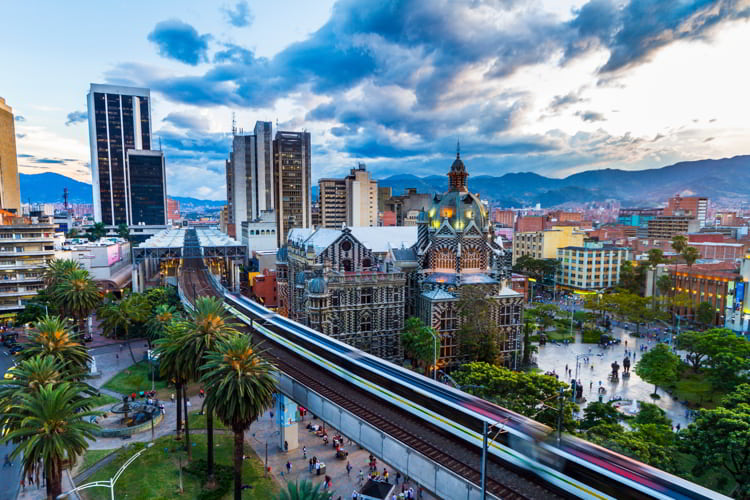
Health care is a major selling point for Colombia. Its health system ranked 22nd in the world by the WHO (they rank the United States at 37, and Canada at 30).
Many of the best hospitals in the country are found in Medellín. In fact, many of the top hospitals in all of Latin America are found here. Colombia’s only JCI-accredited hospital (Hospital Pablo Tobón Uribe) is located in Medellín.
Excellent health care will be easily accessible no matter where you base yourself in Medellín. It’s a major medical tourism destination. The difference in price compared to North America is often so stark that it’s worth it to buy round-trip flights and pay for accommodation just to have work done here.
To access local health care as a resident, you’ll first need a visa and a cédula (local ID). Then you’ll be eligible for a local plan under Entidadas Promotoras de Salud, or EPS. These are basic health care plans that everyone in Colombia must have by law.
These plans cost 12.5% of your monthly income, or pension for retirees. They cover medical, vision, and dental, but at a basic level. Most expats also opt to sign up for some kind of private coverage, known as medicina prepaga.
The cost depends on a variety of factors, such as your age and pre-existing conditions. These plans ensure shorter wait times. There are a few different insurance companies you can go through to get set up on these plans, with SURA being a favorite among expats.
It’s also not difficult to find a doctor that speaks English here, as many have completed some of their studies abroad.
2. Paris, France

Paris is a place where you can have any medical need met, regardless of how complex the procedure. France’s health care system is world-class, ranked first in the world by the WHO. In Paris specifically, you’ll have access to the bestmedical care in the country.
Most of the cost of France’s health care is free if you’re a member of French Social Security (if you’re paying taxes in France). If not, care is still affordable enough that paying out of pocket is a viable option.
3. Chitré, Panama
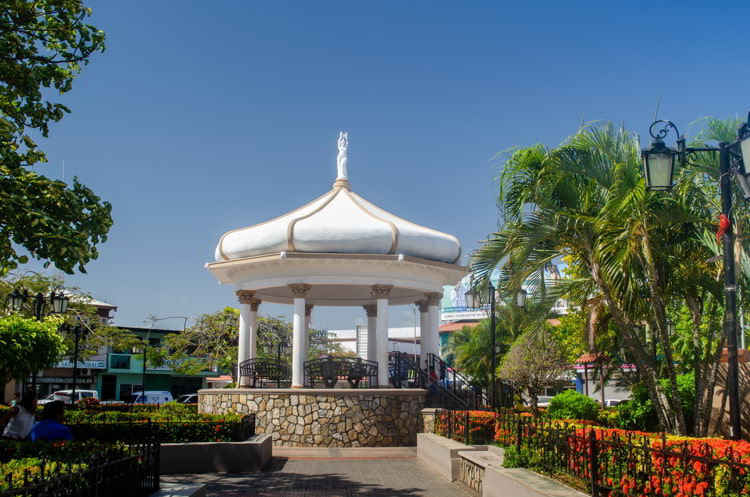
Chitré offers excellent private and public health care. The two best private clinics are Clínica San Juan Bautista and Clínica Dr. Venancio Villareal. Hospital General Cecilio A. Castillero and Hospital Gustavo Nelson Collado are public hospitals offering exceptional care.
Care is free to residents and citizens with Panamanian Social Security. Without Social Security, the cost is US$15 per day and US$1 for a consultation.
Hospital Regional de Azuero, in La Villa de Los Santos (10 minutes from Chitré), is a public hospital that has an agreement with Johns Hopkins. It specializes in heart attacks and heart disease, and all treatment is 100% free, with or without insurance. The doctors are excellent, and some speak English.
Start Your New Life Today, Overseas
4. Costa de la Luz, Spain

Spain’s health care system is ranked seventh-best by the World Health Organization. Across the country, hospitals are of a high standard, with highly trained medical staff and high-tech equipment.
Spain offers a mix of public and private care, with about 90% of the population relying on public health care.
Primary health care is delivered at health centers (centros de salud) across Spain. You can register with a GP at a health center after becoming part of the national health system and paying social security contributions. One expat quotes about US$60 for her monthly contributions.
5. Kyrenia, Northern Cyprus
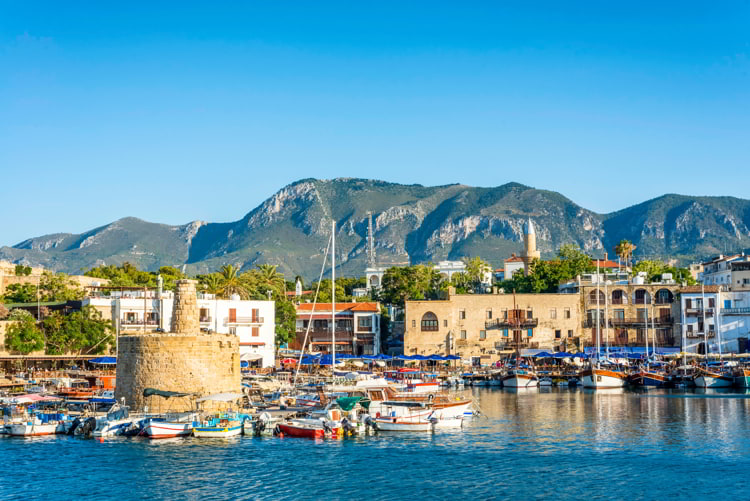
Cyprus’s health care system is ranked 12th in the world by the WHO.
In Northern Cyprus, care is of such a high standard, medical tourists are starting to seek it out. Many come for world-class treatments in IVF while others take advantage of the low cost of complex investigations (MRIs, CT scans, etc.) as well as inexpensive dental care.
Costs are so low that many pay out of pocket. The average cost of seeing a specialist, for example, is around US$45. Standards are excellent, and medical professionals are English-speaking and well-qualified.
In Kyrenia, the main hospitals are Kyrenia General Hospital (a public facility), Kyrenia Medical Centre (private), and Kolan British Hospital (private).
In all of Northern Cyprus’s cities, you’ll find private and state-run clinics and hospitals, as well as surgeries, emergency medical facilities, dentists, opticians, and even alternative health care options.
6. Oaxaca, Mexico
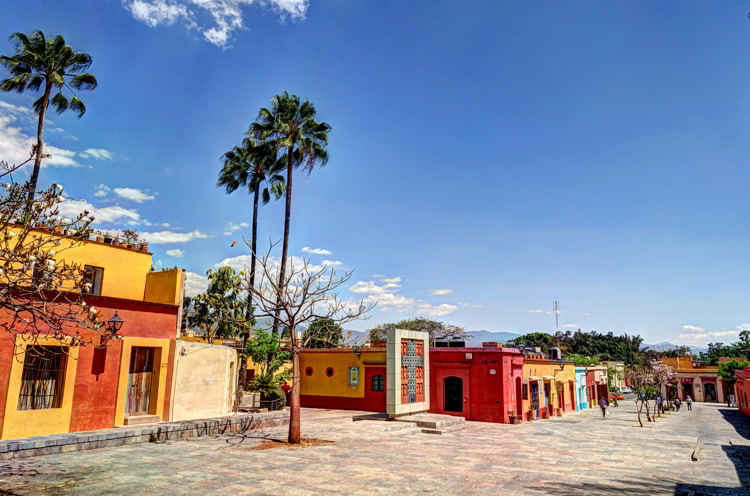
A major draw of living in Oaxaca (and Mexico in general) is the high-quality, affordable health care. Your medical bills will be a fraction of what they are up north if you relocate here.
On the most basic level, you can see a doctor in the small offices that are attached to most pharmacies. This costs US$2 or so and is great if you’re feeling under the weather and need a quick diagnosis.
For more serious matters, Oaxaca is home to plenty of excellent clinics and hospitals, many of which have English-speaking doctors and specialists. Some recommended private hospitals include Hospital del Valle, Clínica Hospital
Carmen, and Hospital Reforma.
If you’re looking to become a permanent resident in Mexico, you can eventually join the national program, the Instituto Mexicano de Seguro Social (IMSS). It costs about US$515 a year for someone in their 60s.
Some expats choose to get IMSS coverage but still visit private clinics here and there for things like lab tests. It costs more, but the time saved and the ease of communicating in English make it worth it.
7. Tavira, Portugal

Portugal ranks 12th out of 190 countries for health care, according to the WHO. Its state health care system is paid for by taxes and is typically available to all residents of Portugal, but many expats take out private health insurance as well.
Tavira has a handful of public and private clinics. The main public clinic is Centro de Saúde; the main private clinics are Taviclínica Médica, where you’ll find a handful of English-speaking doctors. The clinics are suitable for the “walking wounded”—people who are ill but not suffering from something life-threatening.
The main hospital serving Tavira is Faro District Hospital, which is 30 minutes away in the town of Faro. It provides services in a range of fields—genetics, allergies and immunology, vascular surgery, rheumatology, and emergency care.
Dental clinics are found across the Algarve, and unless you’re covered under your private health insurance, you’ll pay per visit. Prices are reasonable: US$50 for a check-up and polish, and US$65 for a basic tooth extraction.
Sincerely,

Sophia Titley
Editor, Overseas Living Letter






